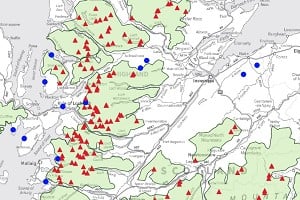
David Lintern puts the new rules against wild camping in the Loch Lomond and Trossachs National Park to the test... by breaking them. Three months on, he reflects on the policy. Is it the only solution to a serious problem? Can it even work? And what are the wider implications for access in the British countryside?
In early March, 10 days after the new camping restrictions came into place in Loch Lomond and the Trossachs National Park, three friends and I went into the Park with a deliberate intention to break the new byelaw and test its limits.
It's useful to point out straight away that there is no outright 'camping ban'. The emotive language of a 'ban' is understandable given how strongly some feel about the issue, but probably best avoided… largely because the Park's own messaging and implementation has been so confused. Signage is patchy and often incorrect, and many of the permitted campsites are not yet fit for public use – the ground is boggy or obstructed with clear-fell, facilities are not provided, policing is inadequate to support the rangers in their work… and so on.
There is one thing that is consistent. The Park Authority continue to promote the view that lochside camping is not 'real' wild camping, in my view a disingenuous and bourgeois sleight of hand that only serves to strengthen class and other barriers to access and engagement. As a direct result of this bad faith, some local activity and education providers are now answering questions from groups they work with concerning where they should camp, now that their overnight stays are 'banned' inside the Park.
That seed of doubt is why we need to be careful about how we proceed: If the aim of the new byelaw was to put people off, as many believe, with loose talk of a 'ban' we in the outdoors community might actually be doing the Park Authority's dirty work for them.
So what is the situation?
Under the byelaw, there are now management zones in the Park, which cover around 150km of the most popular loch shores. Inside these zones, informal camping is prohibited from March to September. Instead, the park is attempting to provide sites for which a permit can be purchased, in advance, for £3 per night.
The National Park Authority explain the thinking behind the new system of byelaws and permits in this video:
What did we do?
Back in early March, we pitched our tents at a lochside location, deliberately outside a permitted area and without having purchased a permit. The following morning, the Ranger Service approached us, asked questions, we gave our details and left. It was a polite but surreal encounter and it now seems unlikely that any legal action will be taken against us, but that was certainly unclear at the time.
I was concerned that our action would be misinterpreted by the mainstream media, but I needn't have worried. Aside from a modicum of support from the outdoor press, coverage of our small act of civil disobedience was wholly absent, despite the byelaw introduction making national news just 10 days previously. I tried to get in touch with several prominent journalists who had covered the issue, but was frustrated by a wall of silence. How timid, even complicit, the media have become. Via social media, as expected we received both praise and a little criticism. Some argued we should have refused to give our details, others suggested we were goading the Park by not 'stealth' camping.
In our defence, I'll say that our experiment was carefully planned, with a set of specific questions prepared, and with an agreed course of action, should we be approached, that everyone present was comfortable with. Some of my friends preferred not to risk the criminal record that refusing to give personal details might entail. Of course, even the legal obligation to give one's details is punitive, and what's more, the Park Authority has openly admitted it's designed to be so.
As to whether our choice of site was deliberately provocative, the point of the exercise was to wild camp exactly as we would normally do in Scotland, following best practise as responsible and experienced outdoorspeople… in order to understand the new rules. Would the Rangers be on patrol, and what would happen if they were? We had no idea – to our knowledge, this was the first test of the byelaw.
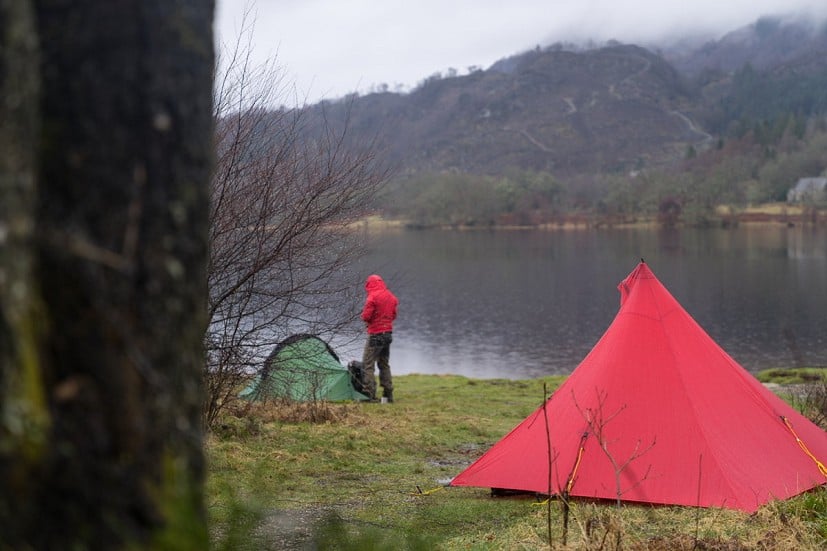
So, this was no spur of the moment, hotheaded decision to go into the woods and rage at the Rangers. Yes - it was a symbolic gesture, but it was also a precise, premeditated test.
The whys and wherefores
I'd like to place my own motives in some context. First, our 'wee trespass' follows the footsteps of a far bolder effort – the Mass Trespass on Kinder Scout, in April 1932. Previously denied access to Bleaklow by gamekeepers, 400 ramblers then marched on the Peak District's highest point, resulting in a scuffle, some arrests and even prison sentences… but ultimately in public awareness and sympathy for the right to roam without restriction or harassment, a right which is, for the moment at least, enshrined in law.
Second, there is precedent elsewhere. Many American National Parks control visitor stays with permit-only formal campsites; exactly what Lomond and Trossachs have attempted to establish. Those exceeding the seven-day visitor limit in Yosemite Valley, for example, risk playing cat and mouse with Rangers using tasers, night vision and assault rifles. Of course, this is not most people's experience of the Park. The vast majority are relaxing in expensive restaurants and luxury hotels. They are not outdoors folk who have been rendered outlaws by virtue of not spending enough money.
This could never happen here, surely? The trouble with boundaries is they need protecting, the trouble with rules is they need policing. But by and from whom? No one joins the Ranger Service to become part of a pseudo police force. The Park argue that they are only responding to anti social behaviour, and yes - there's plenty of evidence of fly tipping, littering, partying and fire rings in certain hotspots. However, there's an equally well rehearsed counter argument for which the Park seem to have no answer: If day-trippers, fishermen or campers disturb wildlife, set fires or leave litter, then by all means, prosecute them with the laws that already exist, but don't make enemies of us all.
Perhaps most significantly for me, this byelaw flies in the face of mountain values. A restriction of movement reduces individual autonomy and personal liberty. How will the adults of the future learn self-reliance if everything is dictated to them, and their responsibility and joy in engaging with the natural world safely and wisely is choked at its root by permits and legalese?
Outdoor professionals I've chatted to in the last few months report rising levels of skill and talent amongst those in their care as regards mountain biking, bouldering, climbing and so on… but an ongoing decline in basic campcraft and hill skills. Youngsters may be fitter, stronger and more skilled in their chosen activity than previous generations, but many lack the knowhow and confidence to keep safe and warm, especially overnight, without chaperons. This is not a crime, but not supporting them in that learning is… especially given what deep reservoirs of talent lie in wait. Where will they first learn these skills if not close to home, in a relatively safe environment… starting small, at the lochside? In my view and many others, the outcome of the new byelaw (if not the aim), is to infantilise not to empower.
As if to reinforce this, when I asked the Rangers what the Park's CEO, Gordon Watson, had meant when he told the BBC "our approach is education first – always has been, always will be", I was struck cold by their answer. They told me this meant educating the public about the new byelaw and achieving compliance with it. How horribly limited and limiting this new vision of 'education' is. No mention of enjoying responsible access; learning to navigate, self-rescue, or even the principles of leave no trace.
There is also a cultural dimension. In Scotland the Land Reform Act of 2003 only formalised a much older tradition of the joyful and purposeful wander – the stravaig. Just beyond the southern edge of the current National Park boundary was the Craigallian Fire, where Tom Weir, Bob Grieve and others in the Scottish access movement would scheme and dream in the same era as those Peak District rebels. There's a memorial stone there now, just opposite the loch – tens of thousands of people a year pass it on the West Highland Way, the first 'big walk' for so many from across the world. Both then and now, urban escapees seeking refuge, restoration and re-creation in Scotland's wide and untamed places are a huge part of the reason the National Park exists at all.
So, the Park Authority has committed a crime against freedom for all visitors, yes - but specifically, a crime of historical revisionism against the Scots people. And because the Scottish culture of open access leavens British outdoors culture as a whole, to my mind they have trespassed against all of us – not the other way around.
If the Park had made a good environmental case for the carrying capacity of the land they are now restricting, I think many of us in the community would have given that case more credence. They didn't, however; instead they fell back on an old and problematic dichotomy… one which sets people against nature.
What next?
The byelaw is a few months old now and early indications are that it's not stopping antisocial camping or people leaving their rubbish behind. Furthermore, many of the permitted campsites are still not ready, and some that were on the permit system have been removed. Other areas have been permitted that risk a clear environmental impact to wildlife and habitat. Implementation still appears chaotic, and with the Ranger Service (who have consistently objected to the byelaws from the start) very unfairly caught in the middle.
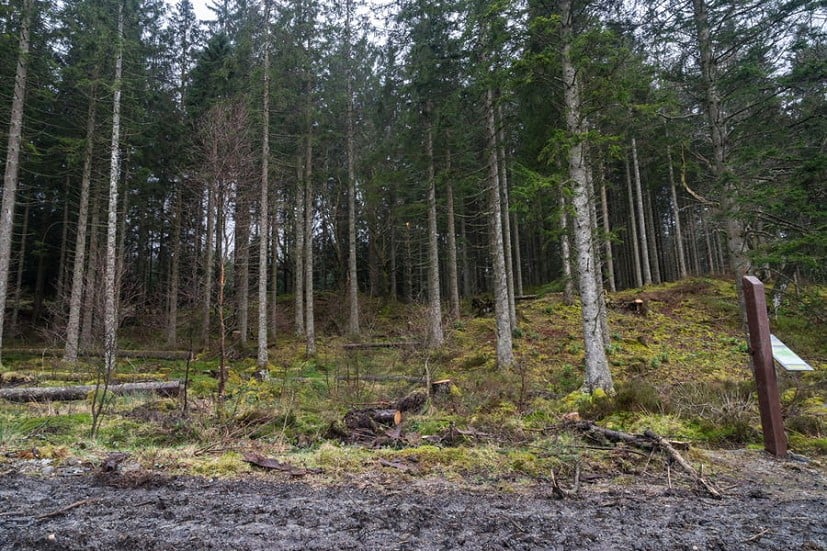
Where the Park see a problem, many of us see an opportunity. Lomondside is the one of the most enjoyed areas of scenic beauty in the UK. The Park could exploit that popularity, and reach the right people with education on good outdoor practise in a more targeted way than ever before. Lift the byelaw, free up ranger time for positive reinforcement in schools, community centres and in the partnerships that have already proved so successful in the area… and use existing laws to come down hard on antisocial behaviour. Leave the general public to their 'quiet enjoyment' of these wonderful places and provide bins and toilet facilities in areas of high use. We need to provide the scaffolding for responsible re-creation, not legislative prison walls to keep nature in and the people out.
If we don't, I am concerned for what comes next. The byelaw area has already been extended from the 2011 trial, and now further areas outside these new management zones are at risk of 'displacement'. If the byelaw stands, access to the islands of Loch Lomond may soon be curtailed, and Glen Etive, where my daughter enjoyed her first 'wild' camp as a baby, will fall sooner rather than later. Once non-elected bodies start to dismantle 80 years of access work, private landowners can and will make claims by the same token.
It's not necessarily just Scotland - this sets a dangerous precedent both north and south of the border. In 2016, the BMC reported on a pilot-licensing scheme in the Langdale valley for activity providers. Those plans have since been shelved, but how long before something similar pops up somewhere else? It seems that in times of austerity, the National Parks increasingly speak the language of economics rather than conservation and engagement, although they manage a resource for the public good. I can see a time when everything those Kinder Trespassers stood for will be taken away. We stand on their shoulders – what will we do?
To begin with, Ramblers Scotland ask that we inform them of every camp and Ranger interaction inside the National Park. The byelaw will be reviewed in 2020, and we need to make good our case in the meantime. It is, after all, our outdoors and our children's birthright to defend.
Please report all Loch Lomond and Trossach National Park camping experiences to: scotland@ramblers.org.uk Also note that erecting any form of shelter, day or night, outside a permit area carries the risk of a fine and a criminal record, as does a refusal to give personal details when asked by a Ranger or the Police.
A shorter version of this article originally appeared in The Great Outdoors Magazine, May 2017
- Scottish Wild Country Backpacking - 12 Great Journeys 30 Nov, 2022
- The Big Rounds 11 Jul, 2019

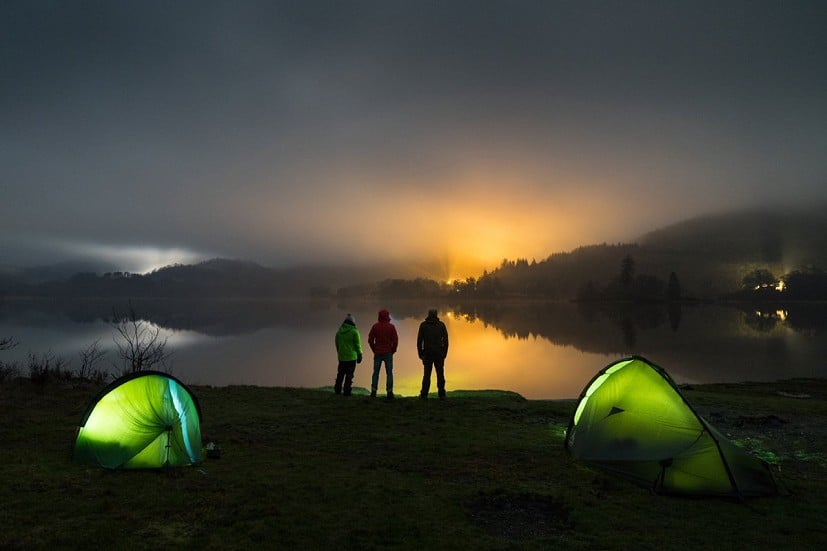
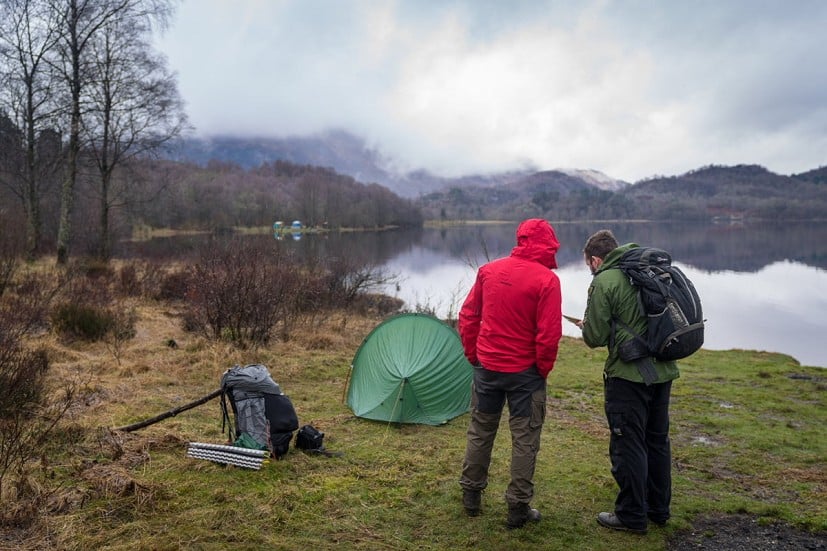
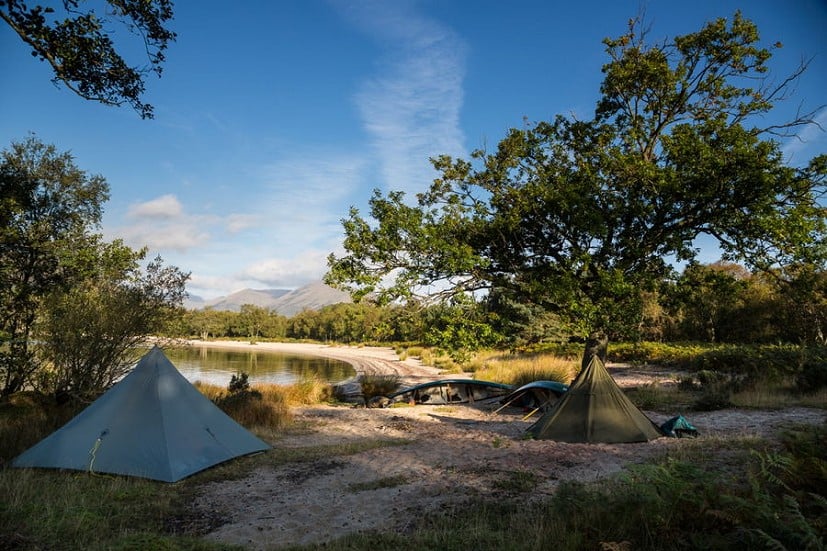
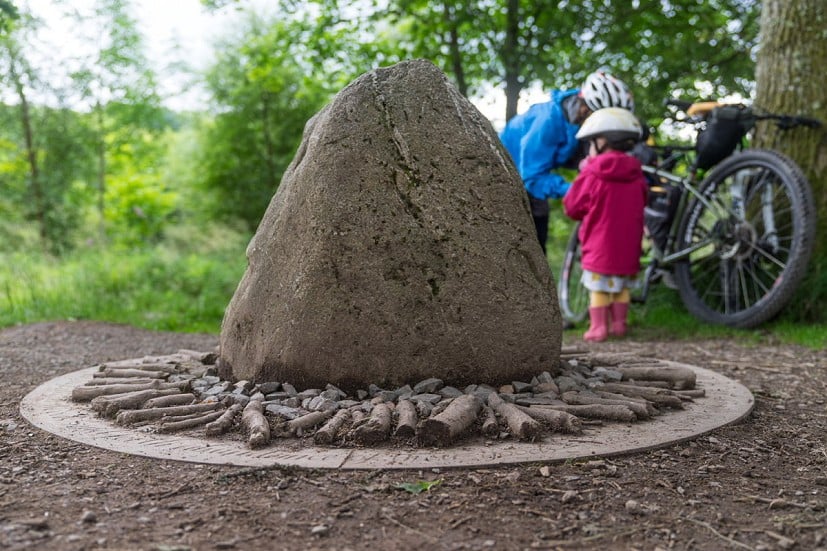
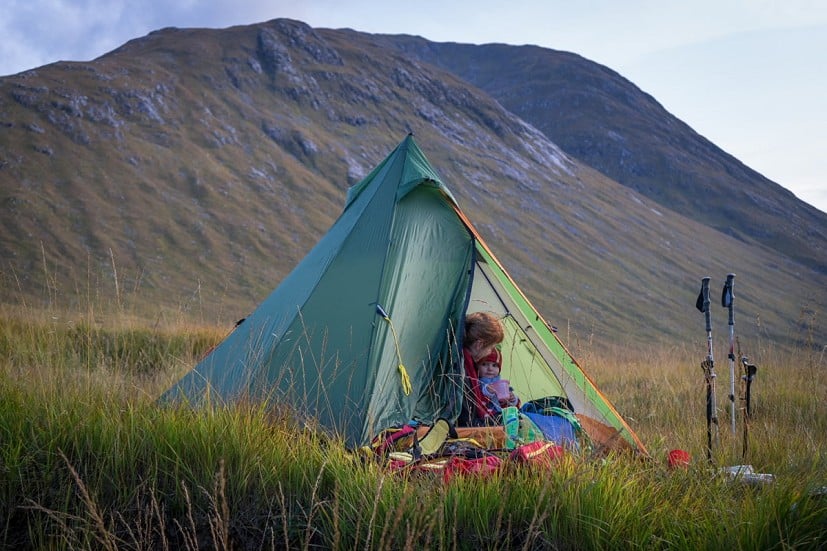
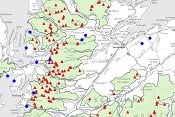
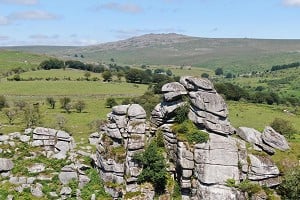
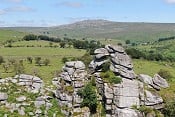
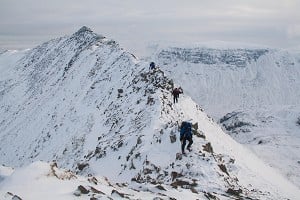
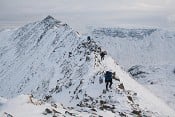
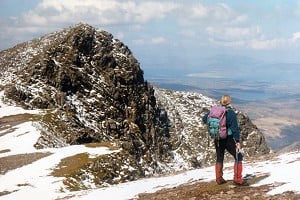
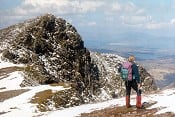


Comments